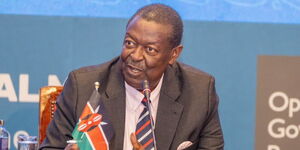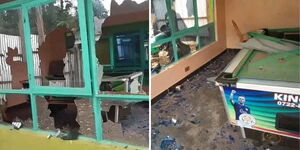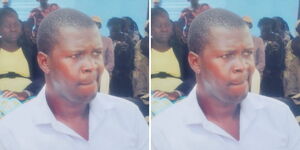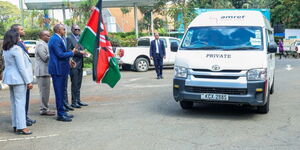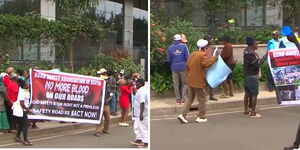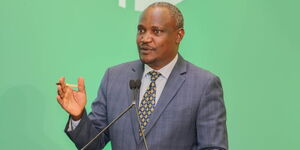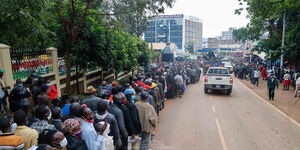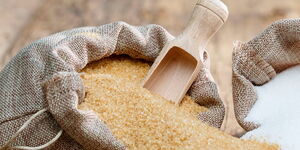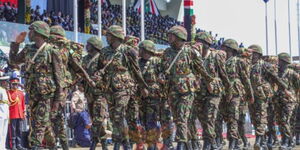President Uhuru Kenyatta’s second term in office was highlighted by the fallout with his deputy, William Ruto.
The two have always blamed each other for the failures of the Jubilee administration, with Ruto insisting that Uhuru’s handshake with former Prime Minister, Raila Odinga, derailed their manifesto and plan for Kenya.
"We need to either work together or not. If they feel that the government is favourable to them, then they should work with us but if they disassociate themselves, then let them resign,” Uhuru stated in February 2021.
“The biggest problem we have is that leaders are good at identifying problems, but not able to offer solutions. So if they see an issue in the media, you see them calling for a press conference to lament about prices of maize, fuel prices,” he added in April 2022 after Ruto and his allies blamed him for the high cost of living.
Uhuru, despite boasting about his successes has also openly admitted failure, but insisted that he would always strive to seek solutions.
Supporting Karua’s Stance on Corruption
Uhuru is an anti-graft crusader, but one who admitted to grappling with curbing fraud and embezzlement of public funds.
On Tuesday, July 12, this year at a rally in Embakasi, Nairobi, the President confessed that he was hesitant about cracking down on corruption suspects.
He thus warned his critics that Azimio La Umoja presidential running mate, Martha Karua, would jail graft suspects and reclaim public property.
“I know she will not be lying around watching as public land is grabbed. They will be jailed. She is not as lenient as I am and I trust her to get the job done," Uhuru stated.
Among the scandals that happened under his watchful eye include the KEMSA billionaires, Euro Bond I and II, NYS I and II, Ksh1.9 billion National Cereals and Produce Board (NCPB), Youth Enterprise Development Fund (YEDF), Aror and Kimwarer Dams cases, and the Afya House scandal.
Ksh 2 Billion Lost Daily
In relation to graft, the President on Monday, January 18, 2021, defended the Building Bridges Initiative (BBI) from critics who claimed that the project was funded by the state.
He shocked the nation by confessing that over Ksh2 billion shillings was stolen daily by politicians who were against the BBI, which was declared null and void by the Court of Appeal and the Supreme Court.
“These people should not mislead the public that Ksh2billion will be spent, yet what they steal every day is more than Ksh2 billion. These people are useless, and I will say it openly, how much do they spend every year?" he wondered.
Russian Invasion of Ukraine
Uhuru lost his temper while addressing the nation on this year’s Labour Day, held on May 1.
With the cost of living soaring higher, hiked fuel and food prices and a hunger-stricken nation facing him, the President hit back at his critics who labelled him a failure.
In spite of convincing the nation that every country in the world was facing the same crisis, he acknowledged that he was struggling to manage the country alone.
“Badala ya viongozi kuketi waseme watasuluhisha vipi, wengine wanaenda huko kuincite wananchi ati waulize Uhuru. Yaani, mimi, mimi niko Ukraine jameni? Mimi nilitoa pandemic huko nikaleta? Badala ya kuja kunisaidia na mawaidha tuokoe watu wetu, wewe uko kwa soko na matusi? (Instead of some leaders strategising on how to offer solutions, they go to incite citizens to ask Uhuru. I'm I in Ukraine? Did I bring the pandemic into the country? Instead of coming to help me with advice to help our people, you are in the market with insults)."
His tantrums drew sharp criticism from his deputy, William Ruto, who reiterated that the Head of State was bearing the consequences of chasing him (Ruto) from the government.
“Sorry, my boss. I feel your pain. Those you assigned my responsibilities and 'project' mzee have let you down miserably,” Ruto tweeted.
The Stadia Promise
In April 2017, Uhuru cited the lack of resources as the reason behind the government’s failure to deliver on its promise of building five modern stadia across the country.
“The truth of the matter is that we have not yet completed those stadia. That is one pledge I refer to as working progress.
“We have rehabilitated several others, but have not yet built the five. Planning and design are underway and we are pushing for the resources,” he explained.
In his second term in office, he oversaw the construction of the 7,500-capacity Ulinzi Sports Complex at Langata Barracks and the ultra-modern Jamhuri Sports Ground.
"We are currently at the process of completing Jamuhuri Park here in Nairobi in addition to upgrading sporting facilities in Eldoret, Marsabit, Chuka, Kisumu, Nyeri, Makueni, Kiambu and Kirinyaga counties. We expect these facilities to be ready for commissioning by the end of December this year (2020)," Uhuru directed while reopening the refurbished Nyayo Stadium on Saturday, September 26, 2020.
Failing to Contain Road Carnages
In November 2013 during his first year in office, Uhuru admitted that his government had not done enough to reduce road crashes.
“As we improve our road networks, special attention must now remain on road safety both on the policy and design stages of our new roads to ensure we avoid unnecessary loss of lives,” Uhuru stated.
Since then, the government financed and revamped the Kenya National Highways Authority (KeNHA), the Kenya Urban Roads Authority (KURA), the National Transport and Safety Authority (NTSA) and the National Police Service (NPS) which has a traffic department.

